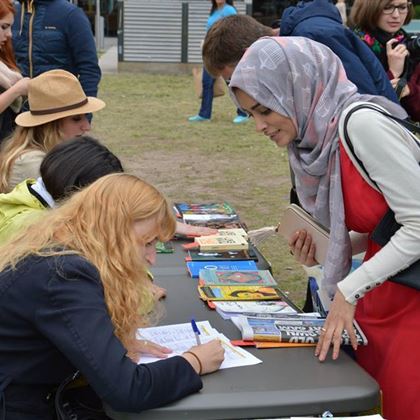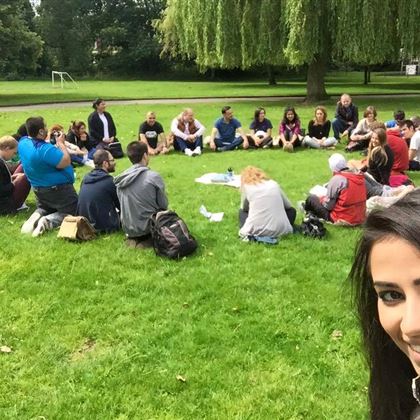Quested Peace CC participated in an intercultural Training Course on “Collaborative economy for youth work”, in Manchester -UK from 19th – 25th July 2015. 30 representatives from 8 countries (UK, Poland, Germany, Spain, Georgia, Egypt, Jordan and Lebanon) attended this program. The training theme was around “COLLABORATIVE CONSUMPTION (CC)”/ECONOMY: It is an economic model based on sharing, swapping, trading, or renting products and services, enabling access over ownership; encouraging and reinventing not just what we consume but how we consume. It is a new economic model that describes the shift in consumer values from ownership to access. Forbes Magazine estimated the revenue flowing through the share economy will surpass $3.5 billion in 2013 with growth exceeding 25% year-on-year. Together, entire communities and cities around the world are using network technologies to do more with less resources by renting, lending, swapping, bartering, gifting and sharing products/ resources (including time) on a scale never before possible. From Airbnb to Zipcar to Taskrabbit, Blablacar (ridesharing company in Spain through online Blablacar.es). Collaborative consumption is transforming business, consumerism and the way we live for a more fulfilling and sustainable quality of life. is a new economic model, a different perspective on how interaction between people can really make the difference in quality and sustainable lifestyle. As Collaborative Consumption is the transition from ownership to access, it should be viewed by Youth Workers as an opportunity to access resource at affordable cost and hence enhance their engagement in society. “Collaborative Economy for Youth Work” is a two-level ERASMUS+ project that focuses on changing the pessimistic view of the current world economic situation, which in avertedly leads young people with fewer opportunities to social exclusion. ‘Collaborative Economy for Youth Work’ will enhance the sense of sharing resources and provide innovative ideas to access resources at affordable cost. Also, the training highlighted the benefits of sharing economy as follow:
- Save our environment (such as reducing the carbon and consumption of resources)
- Stronger communities…enhanced communications and cooperation among communities.
- Saving costs by borrowing and recycling items
- Access to goods to goods/ services that cannot be afford buying.
- Enhance self-organization
- Practice participatory democracy
The training organized by Vision 2020 Leadership Initiative in Manchester under Erasmus+ programme.

